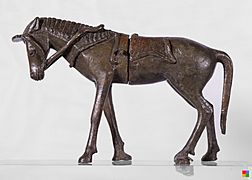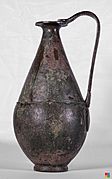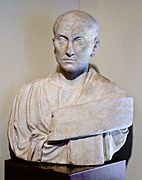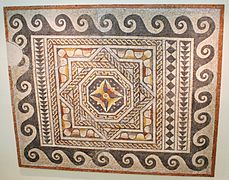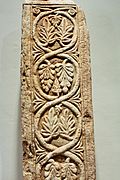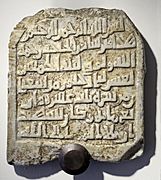Archaeological Museum of Badajoz facts for kids
| Museo Arqueológico de Badajoz | |
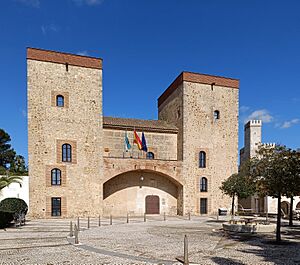 |
|
| Established | 1867 |
|---|---|
| Location | Badajoz, Spain |
| Type | Archaeology museum |
| Owner | General State Administration |
The Archaeological Museum of Badajoz is a cool place in Badajoz, Spain. It's a special museum that shows off really old things found in the area. These items help us learn about people who lived long, long ago! The Spanish government owns the museum, but the local government of Extremadura helps manage it.
How the Museum Started
The idea for a museum in Badajoz came up way back in 1844. But the museum we know today officially began in 1867. It was like a new start for a group that looked after old monuments. The museum truly began to take shape in 1869. That's when it received many ancient objects from digs at a place called Los Cercos. Before this, the small collection was shown in a meeting hall.
During the Spanish Civil War, in 1938, the museum's ownership changed. It moved from the local government of Badajoz to the national museums' group.
The museum moved several times over the years. Finally, in 1989, it opened in its current home. This building is the Palacio de los Condes de la Roca. It's located inside the old walled area of the Alcazaba of Badajoz. Also in 1989, an agreement was made. This agreement meant the Junta of Extremadura, the local government, would manage the museum. The Spanish government still owns it.
What You Can See
The museum has a huge collection of "warrior steles." These are ancient stone slabs with carvings of warriors. They come from the Bronze Age, a very old time in history. About a quarter of all warrior steles found in the Iberian Peninsula are right here!
Besides items from Badajoz, the museum also has tiles from other Spanish cities. These include Toledo, Medellín, Zalamea de la Serena, Cumbres Mayores, Granada, and Calera de León.
The museum's permanent exhibits cover different time periods. You can explore:
- The Physical Environment (how the land was)
- Prehistory (before written records)
- Protohistory (early history)
- Roman times
- Late Roman period
- Visigothic period
- Islamic period
- Christian Middle Ages
-
Anthropomorphic figurine from Rena (around 3000 BC)
-
Warrior stele from Los Llanos, Zarza Capilla
-
Punic-Tartessian vessel from Siruela
-
Unidentified Roman bust found in La Majona, Don Benito
-
Gravestone of Sapur, first taifa king of Badajoz (11th century)
See also
 In Spanish: Museo Arqueológico Provincial de Badajoz para niños
In Spanish: Museo Arqueológico Provincial de Badajoz para niños
 | Emma Amos |
 | Edward Mitchell Bannister |
 | Larry D. Alexander |
 | Ernie Barnes |



